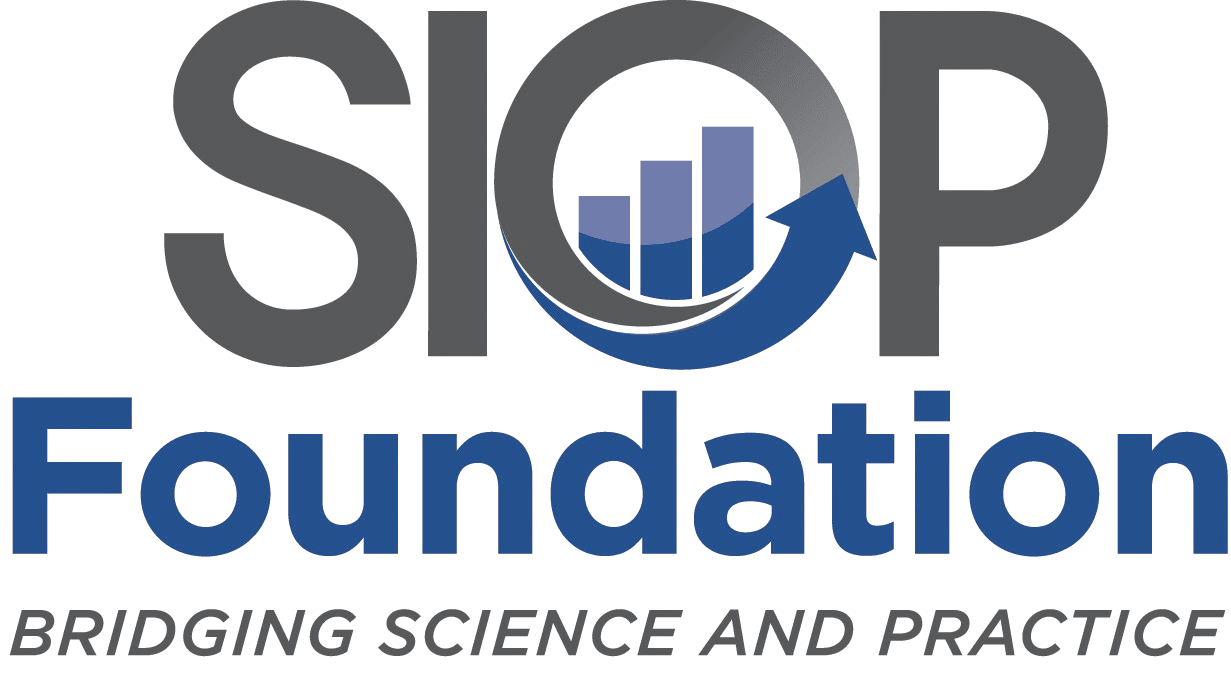About The Award
The Anti-Racism Grants program stimulates and supports projects intended to promote our understanding of racism and eliminate it from the workplace. I-O psychologists conduct and apply “research that improves the well-being and performance of people and the organizations that employ them.” Because the presence of overt and institutionalized racial discrimination constitutes direct and indirect threats to the well-being and performance of employees and employers, anti-racism in the workplace is a topic that must be addressed. For the purposes of the Anti-Racism Grants, “racism” is defined as “prejudice, discrimination, or antagonism directed against a person or people on the basis of their membership in a particular racial or ethnic group, typically one that is a minority or marginalized.”
Past Winners
What We (Don’t) Talk About When We Talk About Diversity: The Subtext and Consequences of Diversity, Equity, and Inclusion Initiatives
Michelle (Mikki) R. Hebl, Naomi Fa-Kaji, and Eden King
We propose a three-part, mixed-methods project to examine the subtle messages conveyed by diversity, equity, and inclusion (DEI) initiatives, independent of any explicitly articulated diversity ideologies or policies. We ask: (a) What subtle or covert messages do organizations convey in their framing of DEI efforts?; (b) How do Black employees interpret these messages, and what are the resulting psychological and organizational consequences?; and (c) How do White employees interpret these messages, and do these messages influence their support for organizational DEI policies and their motivation to address inequality more broadly? Our first study will be an archival analysis of Fortune 500 companies’ diversity statements, examining not just the explicit content, as other work has proposed, but also the subtle messages embedded in organizations’ discourse around diversity. In the second study, we will conduct qualitative interviews with Black professionals to understand the messages they perceive in organizations’ DEI discourse, the impact such messages have on their psychological and work-related outcomes, and Black employees’ ideas on how organizations could better offer support. The final study will be a randomized experiment examining the effect of different subtexts in DEI conversations (e.g., vague definitions of diversity, passive language, deficiency-oriented descriptions) on racial bias, support for DEI initiatives, and motivation to reduce inequality among White and Black professionals. Through this work, we hope to highlight an underexplored obstacle to the success of DEI efforts and to identify how organizations can make good on their stated desire to advance true diversity and equity.
Reevaluating the Target: Developing Messaging Strategies to Improve the Targeted Recruitment of Black Americans in Organizations
Veronica Derricks, Leslie Ashburn-Nardo, India Johnson, and Evava Pietri
Recent events have highlighted the pervasive inequities that disproportionately affect Black Americans. In response to these events, many organizations have expressed a commitment to diversity by increasing their targeted recruitment of Black employees. Despite this aim, the efficacy of targeted appeals as a recruitment strategy has yet to be tested empirically. Evaluating the effectiveness of targeted appeals is critical given prior research showing that targeting based on racial identities can elicit threat and disengagement from desired behavior. Within organizational contexts, we posit that targeting based on racial identities (e.g., via a direct appeal expressing interest in recruiting Black employees) may activate Black adults’ concerns about being tokenized (i.e., feeling hypervisible and scrutinized as a minority within the organization), subsequently reducing organizational attractiveness and trust. Given that targeted appeals can backfire, it is imperative that organizations utilize strategies that signal identity safety: beliefs that one’s identities will be valued in the organization. Across three online experiments, Black Americans will imagine themselves as prospective employees of a fictional company. Study 1 will assess whether seeing a targeted (versus nontargeted) recruitment appeal increases concerns about being tokenized by the organization, leading to decreased organizational attractiveness and identity safety. To address the negative outcomes observed in Study 1, Studies 2–3 will test the effectiveness of intervention messages designed to reduce concerns about tokenization. These studies have important implications for understanding recruitment strategies that can backfire, inadvertently exacerbating racial disparities in organizations, as well as messages that organizations can implement to more effectively promote equity.
Words Matter: Identifying Language in Job Postings That Perpetuates Racial Segregation and Work
Cassondra Batz-Barbarich, Nicole Strah, and Stuti Thapa
Though the Jim Crow Era signs of “Help-Wanted: Blacks Need Not Apply” exist now only as stains on our history, subtle racism and signals of noninclusivity continue to permeate most aspects of work, including perhaps the “help-wanted signs” of today: job postings. Our proposal seeks to investigate the existence and power of race-(non)inclusive language within job descriptions that may cue belongingness and job interest for job seekers of color. Because race-related language is understudied within organizational contexts, we use both inductive and deductive methods across three studies to achieve this goal. In Studies 1 and 2, we inductively investigate general language (i.e., beyond equal employment opportunity language) that cues belongingness and job interest for applicants of color. We do this by (a) using qualitative data about job seekers’ perceptions of job description language and (b) using text mining to investigate actual language present in job descriptions that do garner job seeker applications. In Study 3, we deductively investigate whether these language cues predict perceptions of belongingness and job interest in job seekers of color, using an experimental design. For this research, we request funding for data collection of a sample of working adults. This research will have important practical and theoretical implications for increasing inclusion in HR systems and promoting the development of richer theories surrounding workplace experiences across race.
A Qualitative Investigation of Black Law Enforcement Officers: Mitigating Racism and Transforming Police Organizations
Melanie K. Prengler, Nitya Chawla, Angelica Leigh, and Kristie M. Rogers
Law enforcement agencies have an enduring legacy of creating and perpetuating racism in the United States. In spite of this legacy, Black law enforcement officers willingly join and remain in law enforcement agencies (also termed “police organizations”; Muhammad, 2010), and demonstrate extraordinary engagement within them, even to the point of risking their lives. An important issue in the study of racism in organizations concerns understanding how individuals who are frequently the targets of racism work within the systems that perpetuate it. Thus, we seek to answer two research questions. First, how and why do Black law enforcement officers enter and remain in police organizations that systemically perpetuate racism, especially against the backdrop of mega-threats? Second, how do Black law enforcement officers perceive their behaviors influencing systemic racism? To answer these questions, we are using a qualitative methodology to construct grounded theory on Black law enforcement officers’ motivation and strategies employed to combat systemic racism in police organizations and their communities (IRB2020-0674). Our project will provide insight into how and why members of marginalized groups stay engaged while working within racist systems and shed light on strategies used by these employees to reduce racism and transform their organizations.


